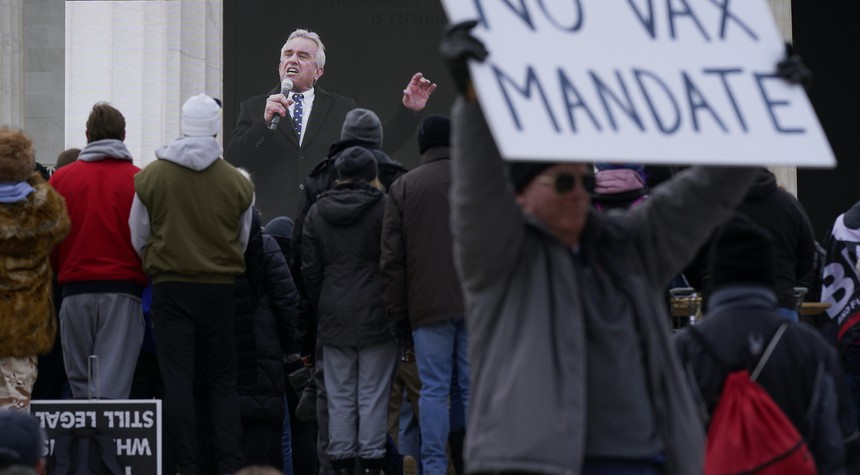Americans Feel Less Free and Don't Trust Public Officials in Post-COVID Poll

A new poll conducted by YouGov and Americans for Prosperity (AFP) and released exclusively to the New York Post reveals that a substantial percentage of Americans believe their basic freedoms are less secure than before the pandemic, and trust in our elected officials has declined substantially.
While the legal basis for our rights is unquestioned thanks to the Constitution, how those rights are protected is causing people to question whether they mean anything anymore. The poll showed that 42% feel less secure about voicing their opinions, 43% feel less secure about their freedom to protest, and 36% feel less secure about their freedom to exercise religious beliefs.
While a healthy skepticism of government power is wise in a democracy, in a true crisis public officials must make snap decisions to protect the public. Whether people follow those decisions depends, in part, on their confidence in the leaders making them. Unfortunately, when asked about every single institution or office in the YouGov/AFP poll, the majority of respondents said their trust in those institutions had dropped.
Nearly three in five Americans said the government did a “somewhat” or “very poor” job clearly communicating to the public about data or reasoning regarding any pandemic restriction or requirement. And 54% thought government officials did a “somewhat” or “very poor” job applying any restrictions or requirements to all people (including themselves) equally.
None of this is much of a surprise except, perhaps, the margins that say they feel less secure in their rights. When more than four in ten Americans feel less secure about speaking their minds or protesting, the essence of freedom is under attack.
Another surprising bit of information from the poll is the percentage of Americans who aren’t buying the necessity of the government’s crackdown on “misinformation.”
While 30% of respondents, including a bare majority of Democrats, believe the government should ban the posting of misinformation online, most Americans in the YouGov/AFP poll say they shouldn’t. And the youngest cohort in the survey, those 18 to 24, were least likely to call for an outright government ban of misinformation.
At some point in the future, there will be another crisis where public officials have to make time-sensitive trade-offs, and Americans will need to trust them to do their jobs correctly and appropriately. Sadly, after the experience of the last two years, those officials will begin with a citizenry predisposed not to trust that their civil liberties are safe in their hands.
Unfortunately, it’s hard to trust a government that doesn’t trust its citizens with the ability to tell the difference between misinformation and the truth.
